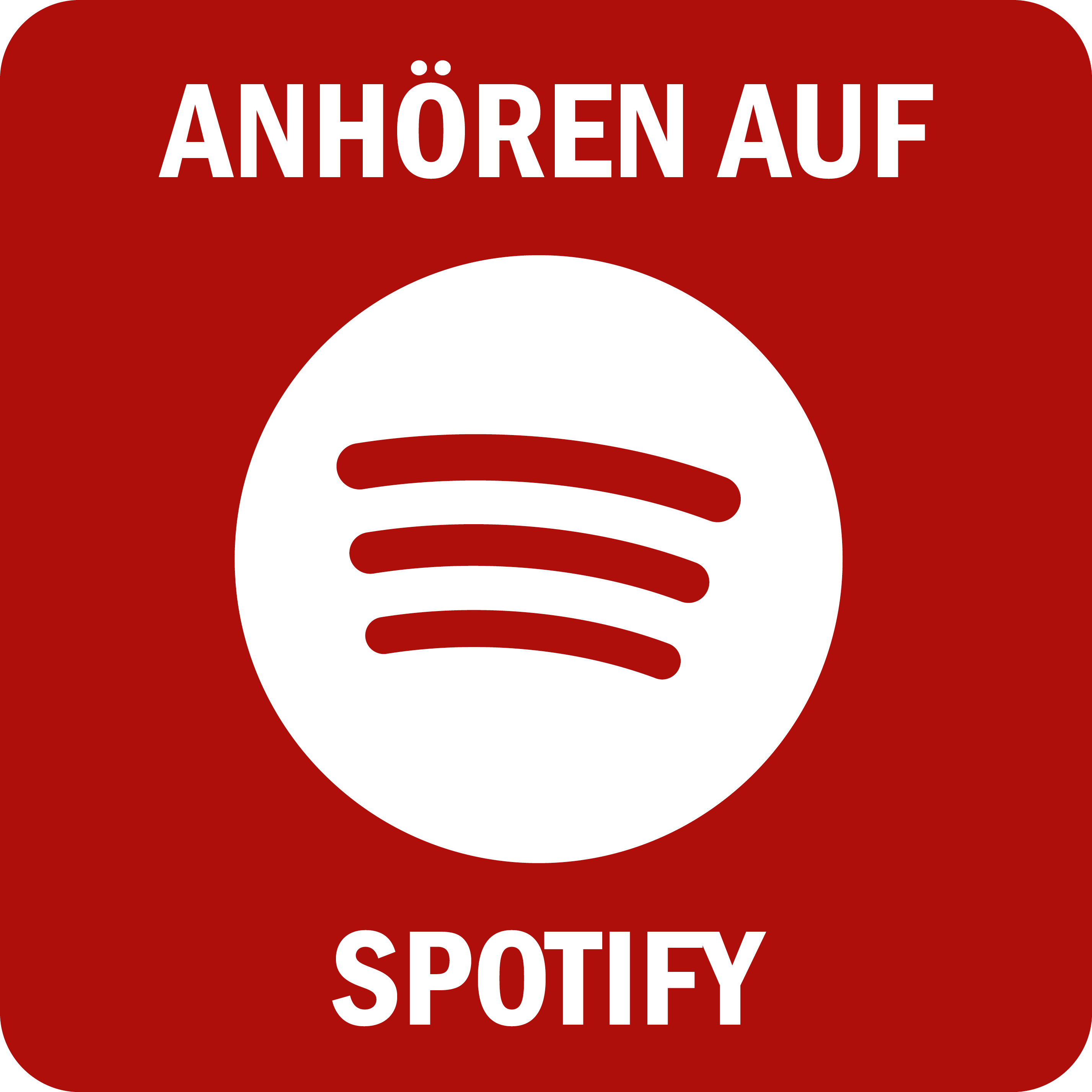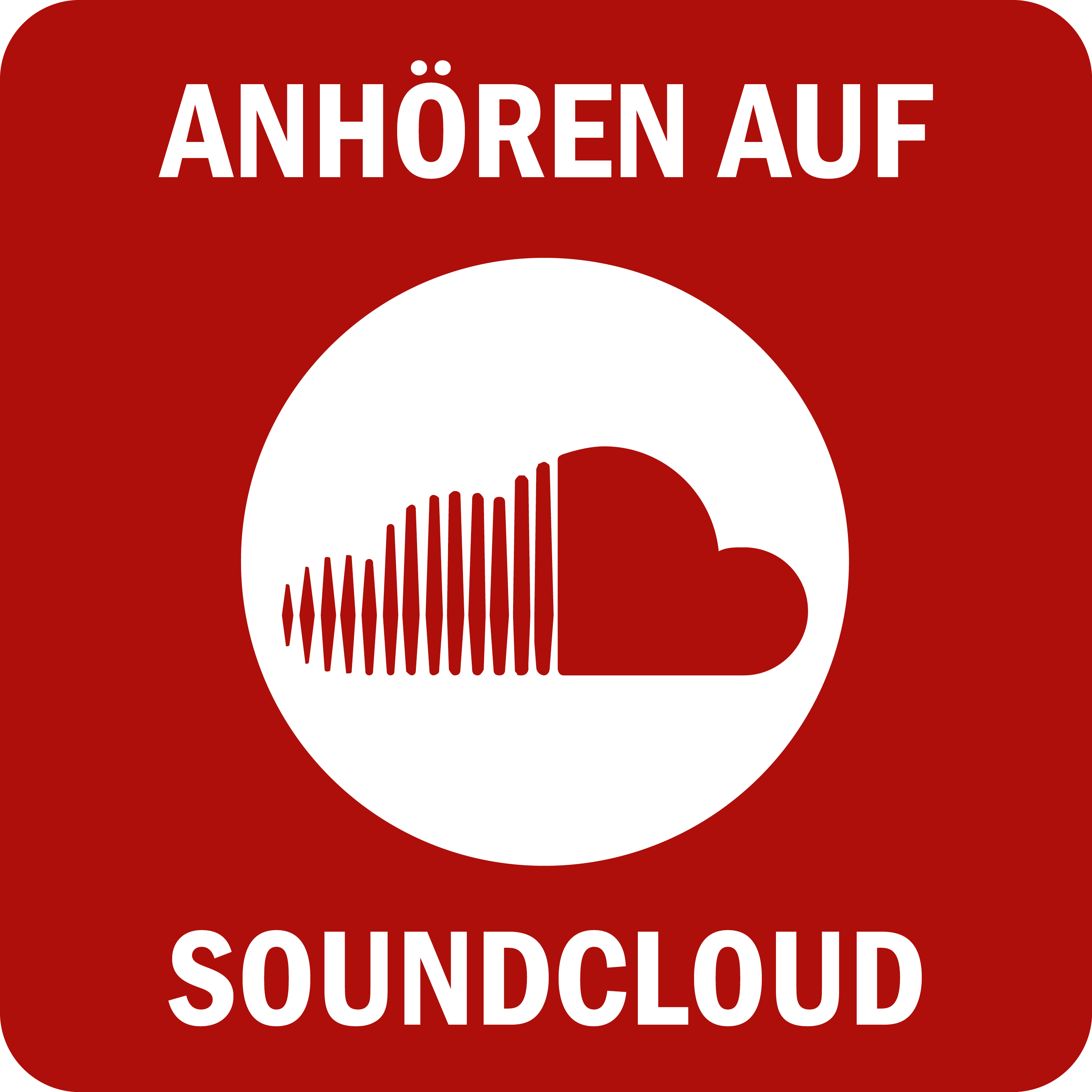What have you been tuned to in recent weeks? To the shrill tone of the drama, or to resignation to fate and the unfounded certainty that those at the helm know what they are doing? To hope and confidence, to "Who knows what it's good for?", or even to "Thinking for yourself makes you smart"?
We have seldom been able to experience so clearly and directly in our own condition how much the mood determines everyday life as in the last few weeks, right?
And how is your mood now, already a bit normal after everything that happened? Back to the way it was? Like the others want? What do you mean what do you mean?
TOO LAZY TO READ ON? THEN LISTEN TO ME:
In the blogcast, I read this recent blog article to you. With emphasis, of course!
After the murder of George Floyd, something completely different suddenly pops up at the top of the newsfeed anyway - and rightly so! - and quickly serves as a new mood maker for all those who are upset and for those who are upset about those who are upset.
Because this tragedy will presumably soon end up where similar things tend to end up, i.e. stamped with "doing nothing at all" in that magical filing cabinet that can be opened with a helpless shrug of the shoulders, that swallows important things and then never spits them out again, the social media excitement engine needs new oil for its fire on which the thin soup is simmering, in which everything but learning value is swimming.
At any rate, new fuel is within reach in Austria, where the parliamentary enquiry committee into the events surrounding the infamous "Ibiza video", which saved us from being co-governed in the Corona crisis by guys who regularly present themselves as hot candidates for Besach administration, begins these days.
Yes, we were lucky once again!
And immediately the old - no, not Story Dudette - Aunt Jolesch steps up to the microphone and intones "Gott soll einen hüten vor allem, was noch ein Glück ist", one of the ever-popular popular hits from her best-of, which has been in every well-stocked quote shrine since 1975 under the still current title "Der Untergang des Abendlandes in Anekdoten".
What is wrong?
Talking about the decline of the West: When you push aside the curtain behind which the Corona erasure damage is now being repaired, or cast your horrified gaze to Minneapolis, some twelve years after the first black US president was elected, when very small and blurred in the rearview mirror of memory the climate crisis briefly enters the picture, or somewhere almost like a dissonance in an online chat "Digital Transformation" whistles in the EarPods, when ... hm ... oh yes! Refugees, they still exist, continue to be stuck where we have forgotten them, or when we look quite profanely in the morning at the bus stops into the faces of the people who, it seems, are mostly on their way from one source of frustration to the next ... when we ... when we ... when ...
Something is wrong.
Something is wrong with the mood.
Something makes me feel quite pensive.
What is it?
What's missing?
I think it is leadership that is missing. The leaders in our society and the leadership in ourselves.
The wrong people are at the helm. One-eyed people are on duty in the masthead, naturally incapable of three-dimensional perception and a sense of proportion. And I ask myself: are there any of them left at all, the right ones, and how can you recognise them?
This begins with the - still - most powerful person in the world. In the cross-eyed cyclops Donald Trump, the American dream becomes a global nightmare, a fatal misunderstanding that all career paths are open even to the least educated classes. In this case, the reference to inclusion in practice would be little consolation, even more so coming from the completely wrong corner.
The misery from the White House, even if not in the same heartbreaking poverty, continues to spread around the world, through governments, parliaments, executive floors, editorial offices, directorates, universities, school buildings, teams and right up to the morning bus stop, where gloomy gazes are reflected in the smudged windows of the bus shelter.
What is missing, especially in a society where most have too much, many have more than they need, and almost all have enough?
It seems to me that most people lack the most necessary things, and most of them are looking for them in the wrong place. Like the drunk who crawls on all fours around a street lamp in the night looking for his flat key, which he didn't lose here, but unfortunately there is no light where he lost it.
So we search noisily for the key to our meaning, search for it in the cone of light that falls on our existence from outside, and not in our dark interior where we have lost it, the key to meaning.
We know that the key ring has a sign on it that reads Purpose, Why, Bestimmung and things like that, which we know from the spines of the books in our self-help guidebook pile on the bedside table. We also know them from the quotes we post on our Instagram feed, which we check on our brightly lit smartphone before we read emails, before we read the news, before we answer WhatsApp messages, before we check our Instagram feed, before we get up, before we say "Good morning!", before we check our Instagram feed again and then post our breakfast - finally surprising the world with us and our green smoothie, which we do every day.
"Fear eats up the soul" is the title of a Rainer Werner Fassbinder film from the 1970s, and FOMO (fear of missing out) does just that, regularly before breakfast. Give the monkey hypoglycaemia? - Well, lunchtime!
Who leads?
We are a leaderless species, we humans, although the - as we assume - only rational life form on this planet, even if we hardly let ourselves notice it, and thus theoretically capable of leading ourselves and then also leading each other. Not guided by drives, instincts and fear, but guided, with measure and purpose.
But what is that: leadership? What does it do? How does one do it?
Is that governing? Commanding? Instructing? Or rather motivate, inspire, transform? It would be better!
The most powerful leadership method, as the history of mankind shows without exception, is stories.
"Whoever tells the best story wins" is what David Franzoni has the lawyer John Quincy Adams say in his screenplay "Amistad" (directed by Steven Spielberg) as a defender of rebellious slaves. Quincy Adams, the former president of the United States, who certainly wouldn't have tweeted dirt, but might have tweeted his beautiful thoughts like: "I'm a warrior, so that my son may be a merchant, so that his son may be a poet."
Stories are how you turn a small Jewish sect into the largest religious community in the world. Stories are used to transform your garage tinkering in Los Altos (CA) into one of the most valuable businesses on earth. Stories are used to transform "I have a dream" into a movement whose impact is huge and yet still not big enough.
But with stories, you also get a hate ball rolling that buries tens of millions of lives under it as it lays waste to half the world.
Man's story is his kingdom of heaven - and apparently more often his gateway to hell, the key to which he always has at hand.
Who against whom?
What every effective story needs is conflict, because without conflict there is no great pain. Without great pain, no motivation to leave the safe haven of the old world, and without departure, no opportunity for probation. Without probation no learning value for comeback, and without comeback no transformation of the old world - and without transformation of the old world no story. Departure, probation, comeback - the Little ABC of every hero's journey.
Those who think too briefly, or do not think at all, look for opponents in conflicts who can be fought as real enemies who must be eliminated directly and with all means. But those who can read The Little ABC recognise in conflicts an antagonistic force whose origin is mostly to be found where man's kingdom of heaven and hell originate: in his free will. In our inner being. In the story we tell ourselves. And then each other.
This is how plans, paths, goals and the leadership to achieve them come into being. This is how everyone leads in principle. This is how everyone should lead - first of all their own life.
However, very few do this and are therefore led, seduced, misled. By news noise, by Instagram feeds, by wanting to have. By the addiction to distraction, although one hardly wants to talk about distraction any more, because only those who are guided can also be distracted.
Rather, we are driven to the morning stop, from where the path takes us somewhere we don't want to be. That's where stress, frustration and discouragement arise: when we are where we don't want to be.
This is how stress, frustration and despondency of entire societies arise: when there are people in leadership positions who should not be there. People who think that wanting and being able to have are the hallmarks of progress, and that this consistently leads to having to have. Because, to put it briefly and succinctly, everyone is only doing well if the economy is doing well, and at the same time people stop thinking and then no one asks: What is good?
Who is the enemy?
People who are incapable of any vision are working in the leadership, who therefore need real conflicts, who look for real enemies and name them - enemies who must be eliminated directly and by all means.
Anyone who thinks differently is an enemy, so: put down, drown out, silence.
The foreigners, especially the refugees, are enemies, so keep them away, lock them away, ignore them.
A virus is an enemy, so fight the symptom, eradicate it, move on.
Mother Earth does not do what suits us, so we prune, conquer, dominate, the forces of nature are not marvelled at but pitied, hunted down, defeated.
In all too many executive suites of companies, states, countries and municipalities, there are precisely these people who do not understand better because they have never learned better and have hardly ever seen better. Fred Astaire's phrase has been true for generations: "The hardest job kids face today is learning good manners without seeing any. Manners is a placeholder for many things that are missing, without weeping for good old times that were probably not even half as good as they look through memory glasses.
Only, what drives the bogeymen in the leadership roles?
The same thing that feeds the morning stop tristesse. It just looks different and is better paid. There, as there, one of the most important levers of story power is missing: the right question.
Before we can explain ourselves and our worlds to each other with stories, we have to - ask! For a start, even a single question would suffice, and many of us would even get by with this question for the rest of our lives: Who am I, and if so, why?
Those who can really ask can question, can question - themselves and their actions, their own intentions, their concerns, their truth(s). Can ask: what is good, and how good am I at being good?
Would it be possible that we have an infinite number of answers but far too few questions, especially not the right questions? I'll have to google that at the next opportunity!
The power of the right question is almost synonymous with the power that stories have to make us strong, as people, teams and society. Or, to paraphrase George Bernard Shaw: We can thus not only see the world as it is and ask, "Why?" but dream of a world as it could be and ask, "Why not?"
If, in response, we pursue a dream that seems impossible rather than the nearest possible enemy - that would be leadership, wouldn't it?
Who asks what?
Every copywriter knows that questions give better headlines than statements; every coach knows that the best path to insight is paved with the right questions; every halfway experienced supervisor has realised that feedback through questions enables better results and development in the best mood for all.
Each important fictional story deals with an essential basic question of life, with which the author tries to explain the world not to us, but to herself. We read along, we live along.
If we ask the right questions, I am absolutely convinced that this will lead to new possible answers. And in the process, I hope with all my might, we rediscover some old answers, dust them off and realise that they weren't so bad and deserve a remake, a cover version, a remix. And who knows, maybe it will become an even bigger hit than the original was?
I currently see one of these golden oldies on posters in Vienna: "What one cannot do alone, many can". It is the founding idea of Friedrich Wilhelm Raiffeisen, the original idea for the bread-baking associations as a response to a huge famine, from which the cooperative system and then the Raiffeisen organisation would eventually emerge. In the cover version, we would call it crowdfunding today, in the remake social entrepreneurship. Works, doesn't it?
It could go on like that. It could lead to something that benefits everyone, that many long for, even if they don't say it.
Yes, despite the tedium of bus stops and many, many daily examples of baseness, lack of empathy and anger, I also sense a growing counter-longing for the complementary, for cooperation - a new togetherness, even as the basic principle of an economic order that really changes everything. Finally, one could justifiably say: "If the economy does well, we all do well. And vice versa even more so!
The people who express this longing or even help it into the world are still the exceptions, but their number and strength is growing noticeably.
What makes school?
In order for these exceptions to become the new rule, new strings would have to be pulled where it all begins, in families, but at the latest in kindergartens and schools. Because that is where the sound, mood and vibration of generations are changed. That is where the notes of the future are struck. It is there that the fourth, perhaps most important, basic skill, in addition to reading, writing and arithmetic, could be taught: Asking. That one asks what one asks; how one asks, and why.
What is floating around as ethics education does not seem to me to be the worst initial option for this, even though probably nowhere else is the teacher shortage more evident than here.
With a bit of luck and a clear mind, we could thus have in a generation a human resource reserve of those real leaders we really hope for, a League of Legendary Leaders.
The right questions lead to the right story, to departure, to probation, to comeback. "If your actions inspire others to dream more, learn more, do more and become more, you are a leader," said John Quincy Adams. You can also be that for yourself.
Everyone tunes themselves in, turns their keynote up an octave to shrill - or strikes a rare intermediate note, which by now is more noticeable than anything else, in the china shop where you can no longer see the cups for the elephants.
"What one cannot do alone, many can" or "everyone against everyone" - that is the crucial question. Do we want to widen the gaps in society or patch them up with the wabi-sabi technique? Man's will is his kingdom, everyone decides for himself which story will lead him, with which story he will lead - and where.
Necessary opponents - antagonistic forces - for functioning stories of the better kind have been lining up for a long time. The next pandemic is sure to come, as sure as the amen in prayer, the next wave of refugees, the transformation of our society through digital transformation and artificial intelligence or the climate crisis are coming. They are already here.
Those who question and lead undoubtedly look for the solutions to these problems where they arise, not where they show themselves; look where it's dark, and that's where they apply the lever. There in the dark cave lies the key to everything, guarded by the only dragon we have to defeat: the evil dragon called Cause. There is no cure for this dragon, only a spell that sounds like the answer to the question: "Who am I and if so, why?
When as many people as possible call out this magic spell together, leadership and momentum are created, with which the destructive approach to each other becomes the necessary constructive approach.
When as many people as possible know their story, their purpose, their path, they develop their inner leadership and are not seducible by anything or anyone.
But if even intelligent people continue to spout that successful politicians can be recognised by the fact that they win elections with snappy answers, the day is not far off when we will call Helene Fischer Mutti. Then it will no longer be the best story that wins, but the sausage that talks the smartest out of the tube.
In any case, what my grandmother, old Story Dudette, sprays on many a house wall when she is once again rushing breathlessly through the night applies: "No Story. No Glory."



